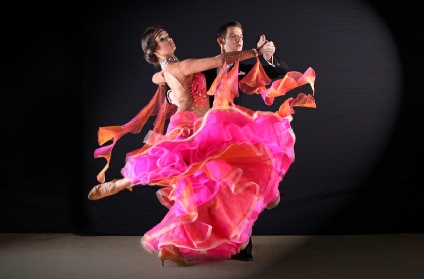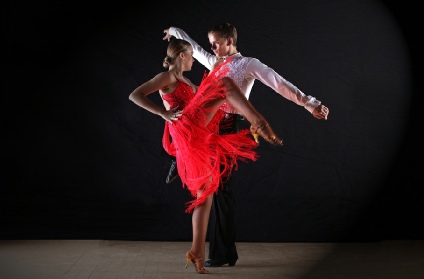


theresagodmon2341@gmail.com
© copyright Theresa Godmon, all rights reserved 2023








A smooth, gliding dance with long, continuous flowing movements across the floor.
Danced to music in 4/4 time.
First danced in the 1910's, the Foxtrot is still popular today.

A well known smooth, progressive dance, and probably the one that epitomises ballroom dancing for most people.
Danced to music in 3/4 time.

As the name suggest probably the fastest of all the ballroom dances but by no means the most difficult to master. Popular at most formal dancing events.
Famous for the “Slow, slow quick quick slow” pattern.
Danced to music in 4/4 time.

Dramatic dance with Argentinean origins with a creeping or stalking nature to the footwork characterised by sharp staccato figures. Slower than other dances but filled with drama and intriguing technical challenges.
Danced to music in 2/4 or 4/4 time but feels more like groups of 8 beats to the bar to the dancer

With Cuban origins in the 1950’s the Cha Cha Cha is probably the best known of all the Latin dances. With the infectious and irresistible “two three cha cha cha “ rhythm, this is the Latin dance everyone wants to learn


Late 19th century Cuba is the origin of this dance, well known for its slow and enticing sensual movements. Similar in style to the Cha Cha Cha but interestingly a challenge to truly master ! Very popular amongst the lady dancers !

A dance synonymous with its Brazilian carnival roots.
With a lively “bouncing” nature this is a rewarding and intricate dance to learn and you will be the star of the show dancing this at any event !

Often associated with 1950 rock and roll party music it was actually developed in the 1930’s and famously brought to the UK as the “Lindy Hop” in 1942 by American soldiers which developed into the Jive we know today. Always a fast and energetic favourite at parties.



Paso Doble actually means "double-step" in Spanish !
Famous for its associations with Spanish bull fighting the man essentially assumes the role of the macho bull fighter and amazingly the lady the role of his cape !
Tricky to master well but a whole lot of fun to learn.
“The” Latin dance for the men ! OLE’ !!





















